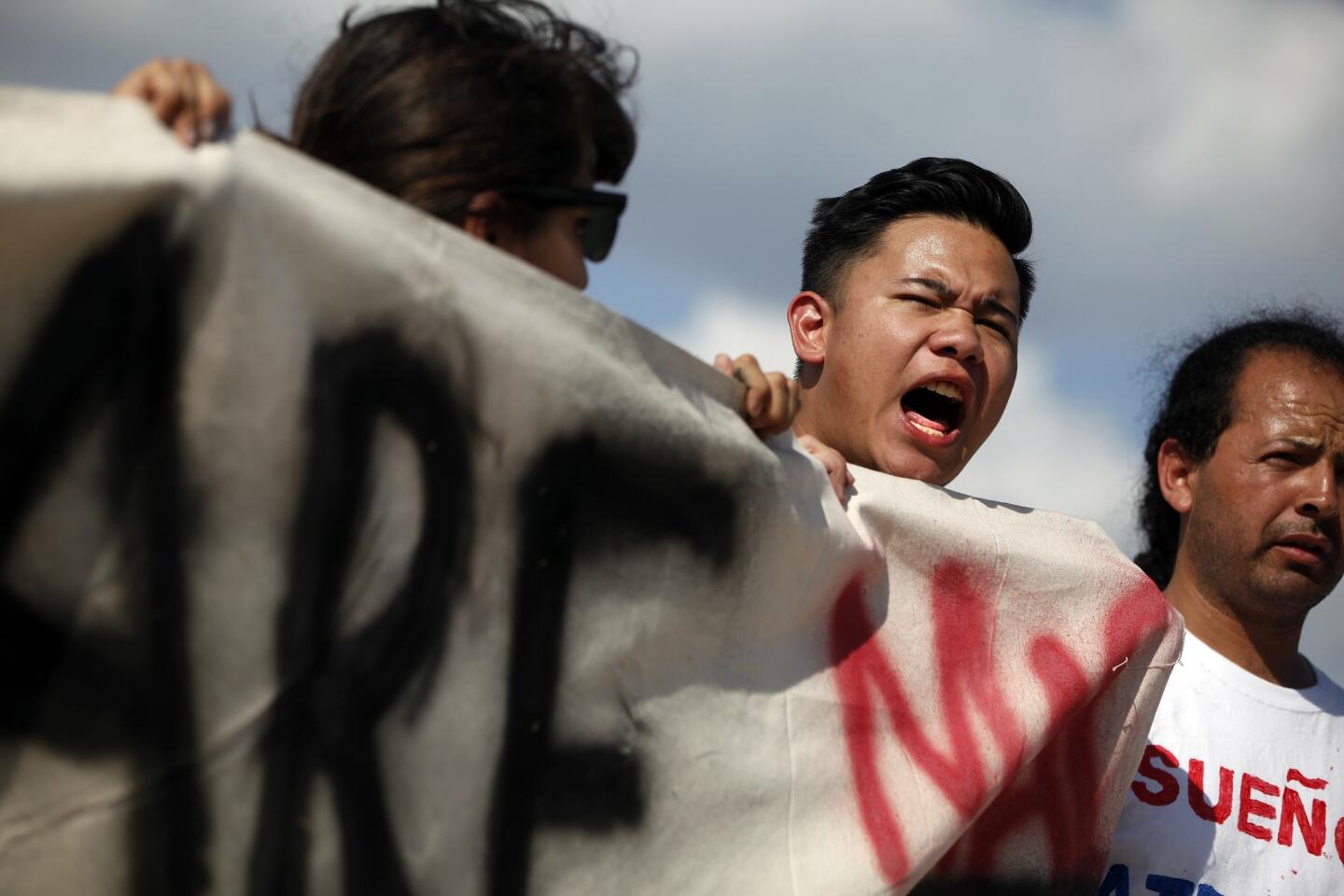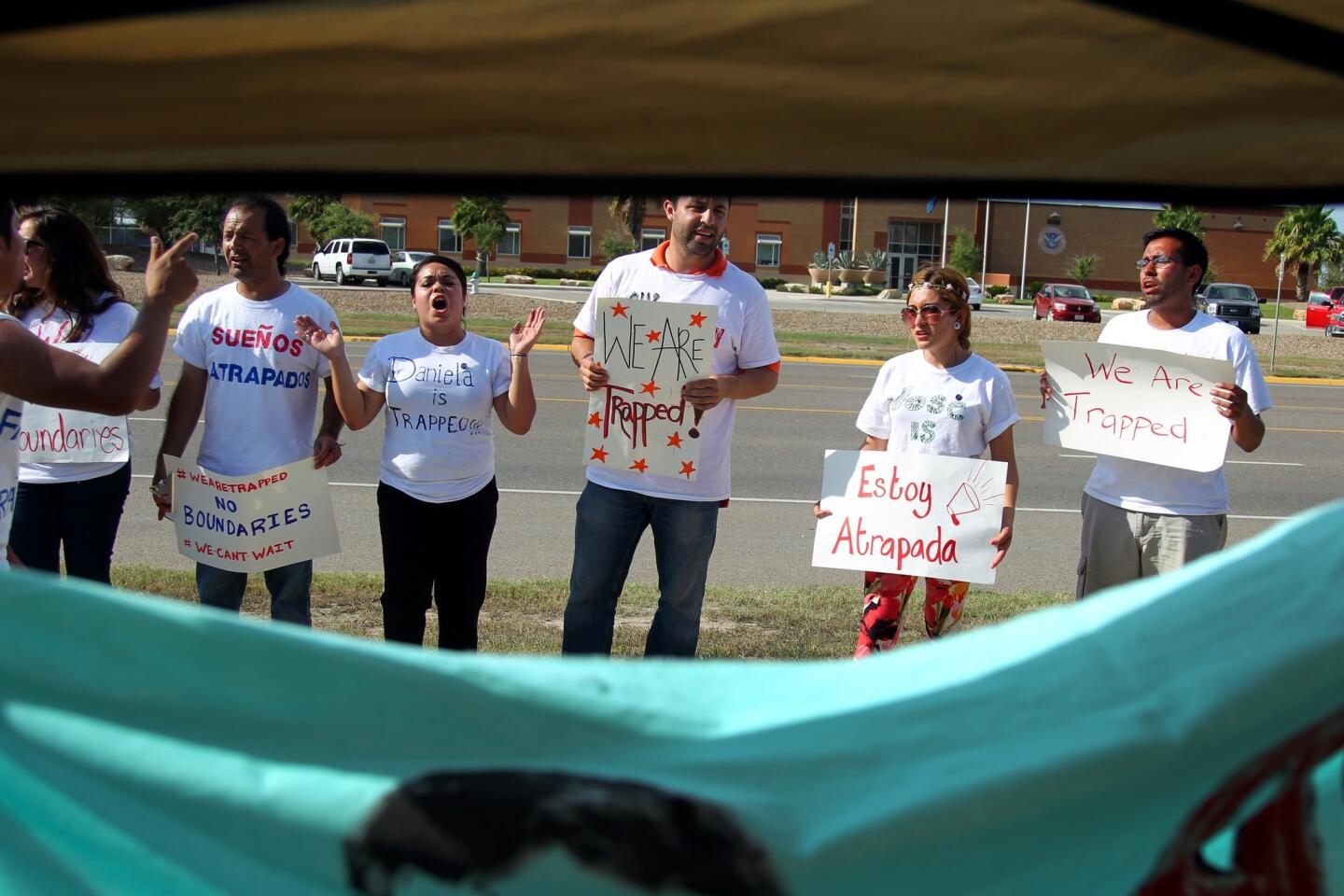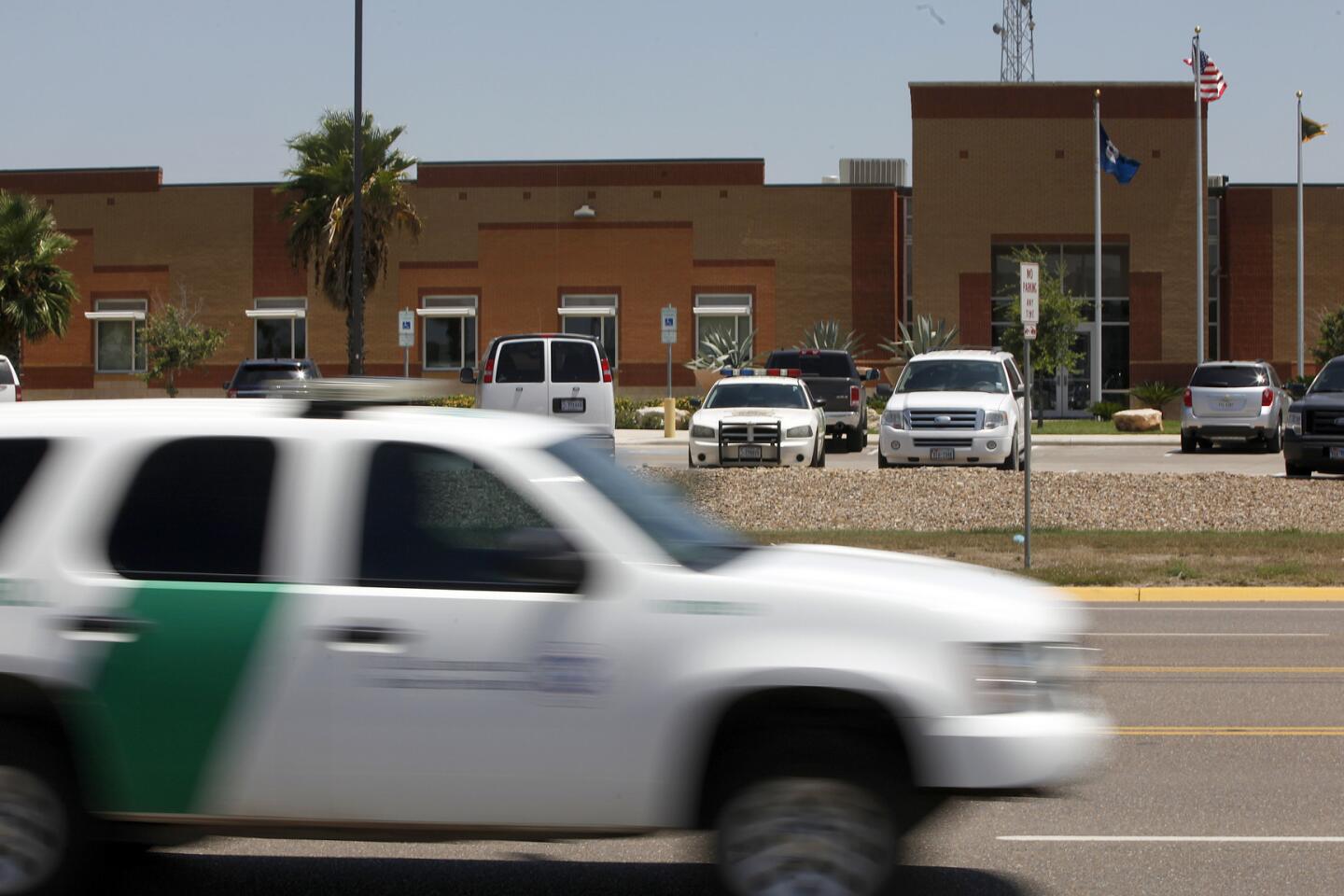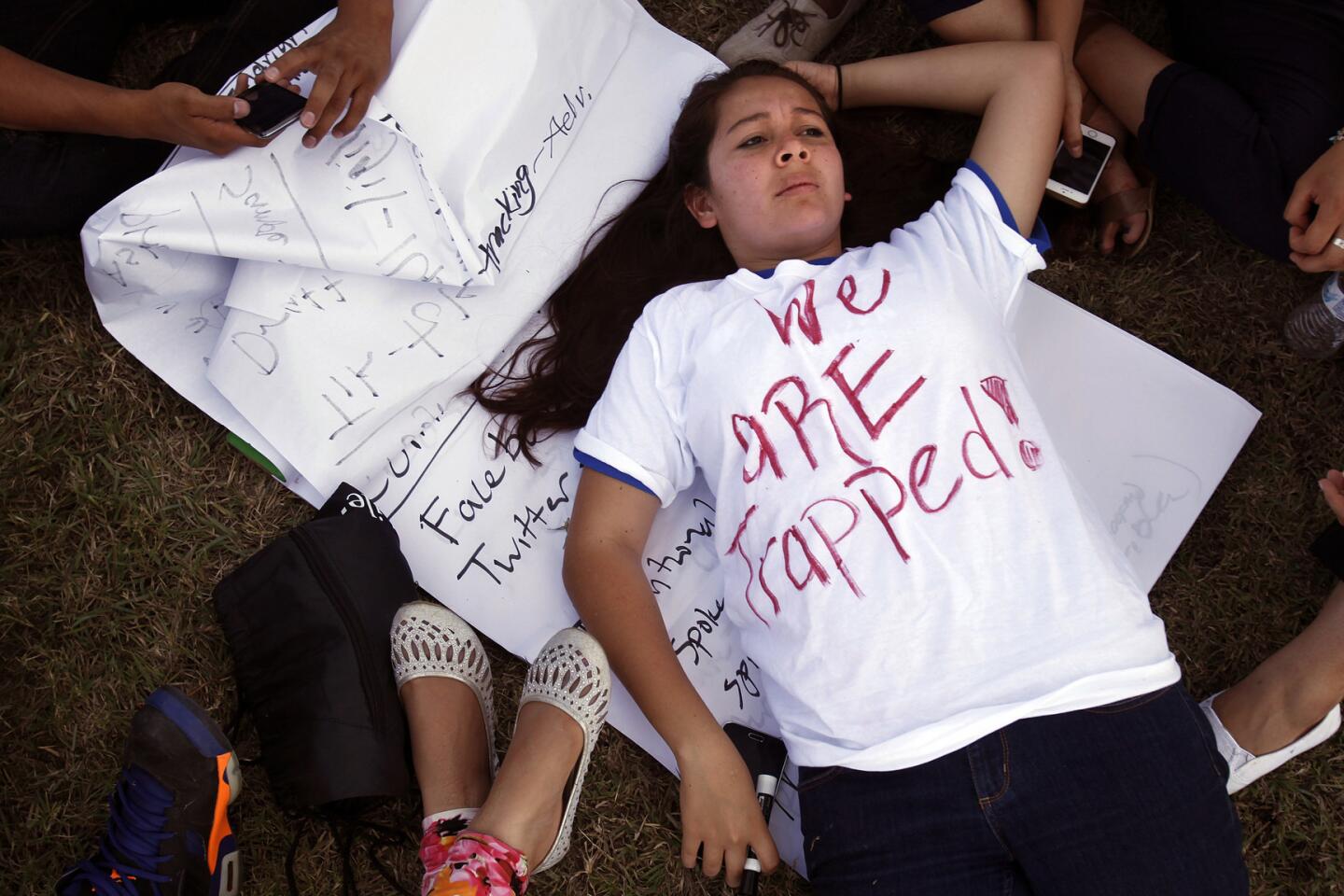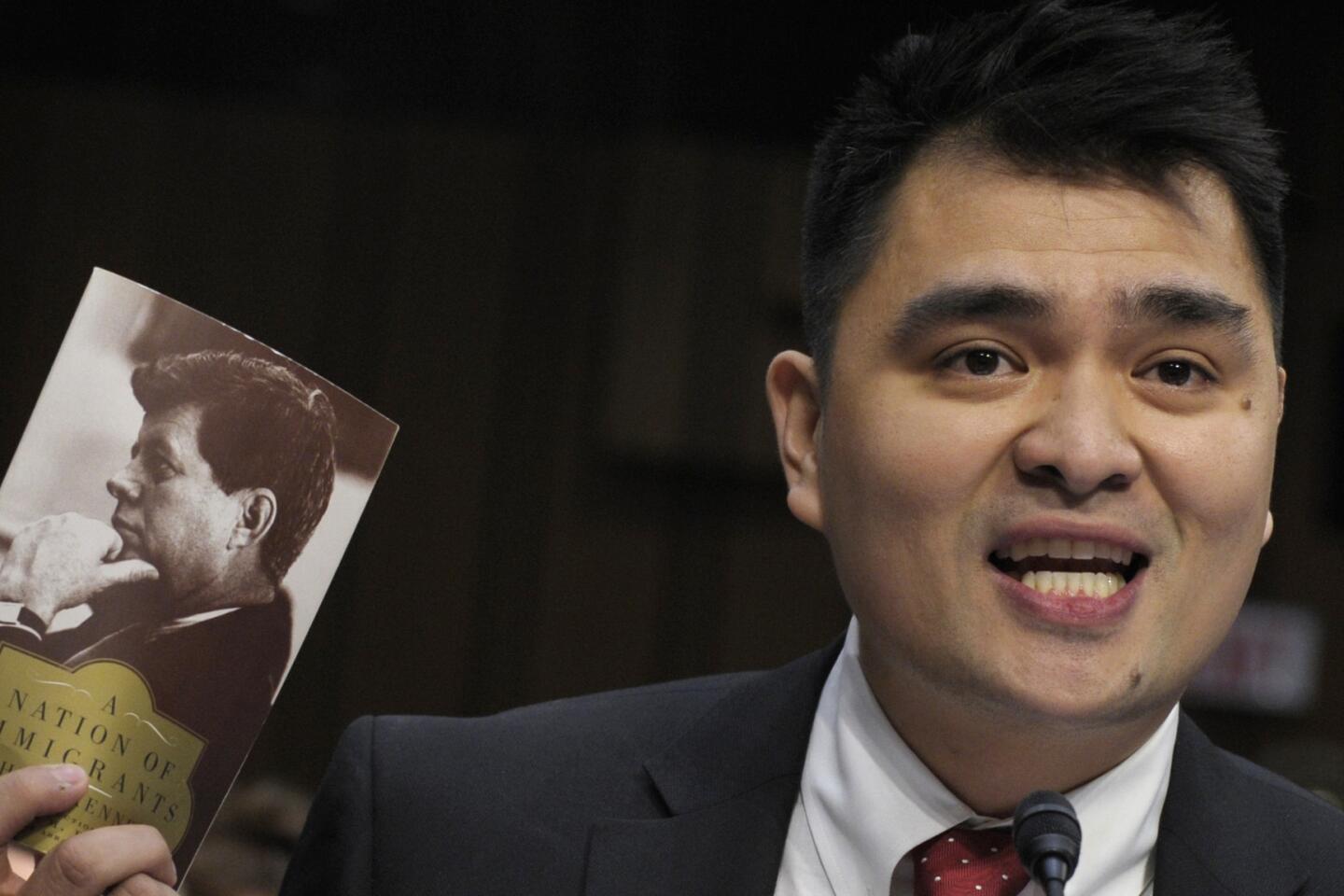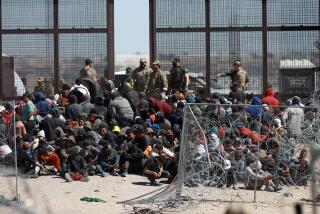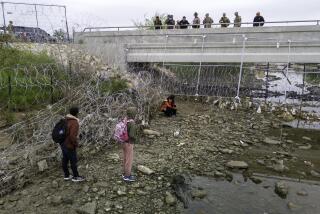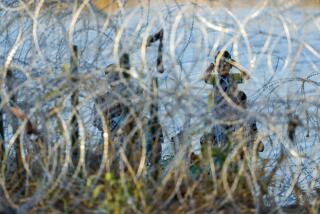Jose Antonio Vargas’ detention casts spotlight on issue he championed
When Jose Antonio Vargas was stopped at an airport Border Patrol checkpoint as he attempted to fly out of this south Texas city Tuesday, he did what he has lately grown accustomed to doing: He announced that he was an undocumented immigrant.
The daylong drama that ensued as the journalist and immigration activist was detained, questioned and eventually released proved both a publicity opportunity and a defining moment in the national immigration debate, just as Vargas had hoped.
The plight of a man who is perhaps the country’s best-known undocumented immigrant cast an immediate spotlight on deportations of immigrant youths in a region where tens of thousands of unaccompanied children are flooding in from Central America.
“I’ve been the most privileged undocumented immigrant in the country,” Vargas wrote last week in a piece for Politico Magazine in which he contemplated the possibility of being detained in Texas. “The visibility, frankly, has protected me.”
Vargas, 33, a native of the Philippines who arrived in the U.S. as a child but never gained legal residency, was about to fly to Los Angeles early Tuesday when he was taken into custody at McAllen-Miller International Airport.
Having arrived in the congested border city to help raise awareness of the plight of undocumented immigrants, Vargas appeared well-prepared for the encounter at the airport, carrying with him a pocket edition of the U.S. Constitution and the Declaration of Independence.
“I don’t know what’s going to happen,” he tweeted.
The arrest immediately drew national attention, in part because Vargas, who once appeared on the cover of Time magazine, has so publicly called for an end to the policy of deporting young undocumented immigrants who, like him, grew up in the U.S. and consider themselves American.
Vargas first outed himself in a lengthy essay for the New York Times Magazine in 2011 and has since appeared in numerous television interviews and produced a documentary, titled “Documented,” that recently aired on CNN.
“I cannot fully imagine the treacherous, dangerous, desperate and long trek to safety, freedom and some kind of peace that these children are going through,” Vargas told a crowd of about 30 activists gathered last week in support of the newly arriving immigrants from Central America.
“Like a lot of people in our country, I have been very angry and lost and confused watching television and looking at what’s happening,” he said. “All of these politicians are basically playing political football with our lives.”
New York Mayor Bill de Blasio called for Vargas’ immediate release after his detention, saying he stood “in solidarity” with the writer and that his detention “shows how our immigrant enforcement agencies are failing to use their discretion and detaining longtime immigrants who do not pose a threat to our security.”
Supporters who carried signs demanding Vargas’ release said his detention felt symbolic for many of them.
“Jose Antonio Vargas has lived the struggle so many of us here have lived. At the end of the day, we’re all connected. We’re all dreamers,” said Roxana Menchaca, 21, a senior at a nearby university and a U.S. citizen, born to undocumented parents, who grew up on both sides of the border.
Vargas was released late Tuesday at the McAllen airport with a notice to appear before an immigration judge within 15 days.
U.S. Immigration and Customs Enforcement said the agency had not previously encountered Vargas and had not previously issued an order for his detention. The agency said it was focused on promoting border security and removing “criminal individuals who pose a threat to public safety and national security.”
Vargas has said he traveled to the U.S. to live with his grandparents in Mountain View, Calif., when he was about 12. He did not learn he was undocumented until four years later, when he tried to get a driver’s license with what he discovered were fraudulent documents.
Despite his immigration status, he went on to graduate from high school and San Francisco State University in 2004, going to work for the Washington Post. There, he was part of a team that won a Pulitzer Prize for coverage of the Virginia Tech massacre in 2008.
Vargas is too old to qualify for the Obama administration’s Deferred Action for Childhood Arrivals program, which has allowed some young immigrants brought to the country as children, known as “dreamers,” to stay in the country legally.
But thanks to loopholes in immigration security, he has been able to travel the country, using his passport from the Philippines. Last week, he headed to the heart of the border crisis in the Rio Grande Valley, ostensibly to highlight the plight of unaccompanied immigrant children.
Supporters insisted that Vargas hadn’t anticipated before his arrival in the valley that the Border Patrol would have checkpoints at the airport and roads leading out of town.
“It didn’t dawn on him until later that he was trapped,” said Tania Chavez, 28, an organizer with the Minority Affairs Council at nearby University of Texas-Pan American.
Chavez, who is also undocumented, accompanied Vargas during his time in the valley. She said he was shocked to see Border Patrol agents on the streets and eating at the restaurants they frequented. She watched him volunteer with immigrant families and speak at a vigil for new immigrants Friday.
After his release, Vargas did not meet with supporters and it was not clear whether he had left the area.
“I want to thank everyone who stands by me and the undocumented immigrants of south Texas and across the country. Our daily lives are filled with fear in simple acts such as getting on an airplane to go home to our family,” he said in a statement.
His supporters held a vigil outside the Border Patrol station, praying for others still detained.
Inside the station, hundreds of agents were at work processing and supervising about 350 recent immigrants. The detainees were being held in 15 cells fetid with body odor. There were pregnant women and mothers with babies in diapers, one suckling a bottle, another chewing listlessly at an apple. Dozens of children stared out the cell windows, some smiling, others tracing the glass with grubby fingers, eyes rimmed red by tears.
Outside, as dusk fell, the protesters began chanting, “What side are you on?”
molly.hennessy-fiske@latimes.com
@mollyhf
More to Read
Start your day right
Sign up for Essential California for news, features and recommendations from the L.A. Times and beyond in your inbox six days a week.
You may occasionally receive promotional content from the Los Angeles Times.
